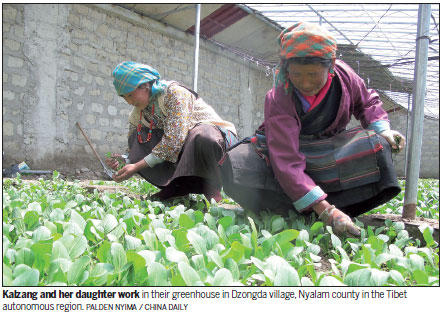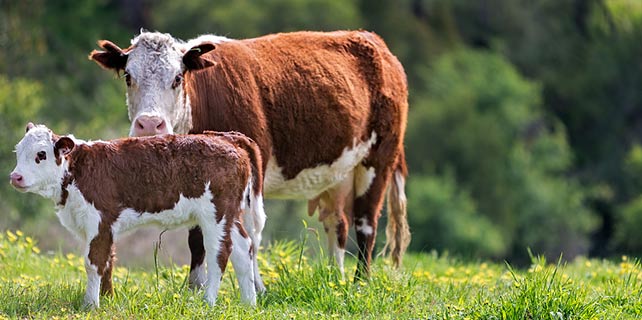Stronger economy provides Tibetan villagers with fresh produce

Eating fresh vegetables used to be a treat for many living in the more remote parts of the Tibet autonomous region.
In fact, some Tibetan nomads are still so unfamiliar with vegetables, which do not normally grow at high altitudes, that they refer to them as "grass".
Nyalam township in Nyalam county is seminomadic with an average altitude of around 4,000 meters above sea level.
Most farmers in the township's villages raise yaks, sheep, horses and goats, and up until recently their main crops were highland barley, potatoes and rapeseed.
Because of the harsh environment and difficult growing conditions, most are used to living on meat, barley, dairy and not much else.
But thanks to improved infrastructure and a stronger regional economy due to Tibet's development over the last few decades, these farmers can now expand their diet.
Even the most remote places now have markets where fresh vegetables can be purchased, and many people grow their own in greenhouses.
Nyalam is a good example of this, with villagers across the township having been encouraged to grow vegetables under an aid project launched in 2009.
In Dzongda village, all 37 households grow their own vegetables and fruits - about 18 kinds in total - with the aid project also helping them to establish a pig farm.
"Our vegetables have been available in the county town and township's markets since 2009, and all the schools in Nyalam county also buy vegetables planted by local farmers," said Tenzin Phuntsok, an official from the county's reconstruction office.
He said about 184 people had directly benefited from the project, including nearby schools and urban residents.
"Thanks to the greenhouse vegetable project supported by the aid-Tibet office, the villagers no longer need to buy vegetables from the market," the 32-year-old said.
However, he cautioned that the project alone can no longer meet the needs of the county town's population, due to an influx of outsiders following an earthquake two years ago.
Basang Dorje, Party secretary of Dzongda, said organic vegetables grown by Tibetan farmers were proving popular.
"This place is seminomadic; we have never had a history of vegetable-planting, apart from potatoes and turnips," said the 51-year-old.
"But the vegetable-planting project has become a new source of income for villagers, and having vegetables in their diet is better for their health."
Xu Lei, head of Nyalam township, said Dzongda had one of the most successful vegetable-planting projects in the whole of Nyalam county.
"With the support of the aid-Tibet and earthquake relief offices, and the agriculture and husbandry bureau, we want to improve the diets of farmers in high-altitude villages," he said.
"We also want to encourage the farmers to generate a stable income by planting their own vegetables."
Kalzang, 62, a Tibetan who lives in Dzongda, has been planting her own vegetables for several years and considers the project a success.
Her daughter and son-in-law mainly work in a greenhouse now, planting cabbage, turnips and bok choy in winter and more than 10 kinds of fruit and vegetables in summer, including watermelons, tomatoes, and cucumbers.
Training sessions, provided by the government, taught them and their fellow farmers how to grow the new crops.
"In the past, without the greenhouse, we had few vegetables in our diet, as we had to go to the county town to buy them and they were expensive," Kalzang said..
"Now we do not need to buy vegetables, which we eat instead of meat and dairy, as they are more nutritious and healthy."
palden_nyima@chinadaily.com.cn









